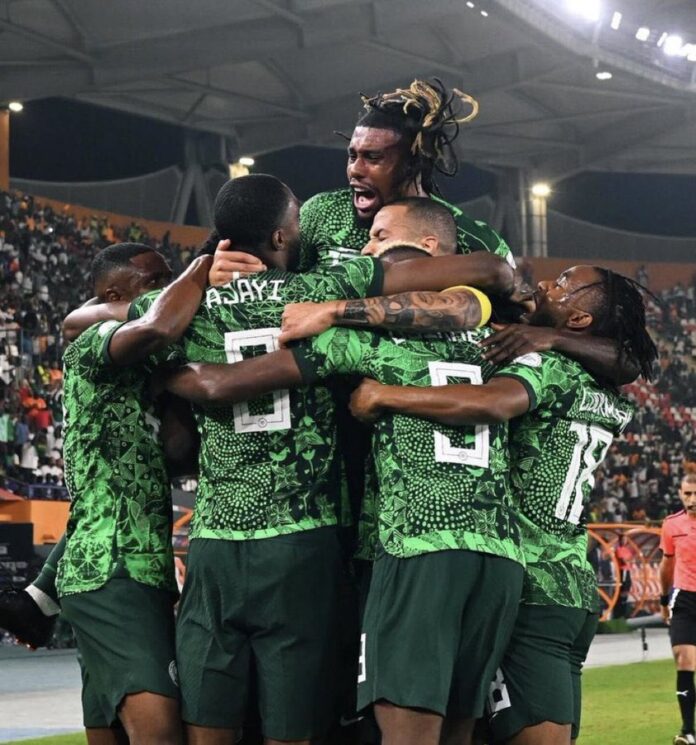|
Getting your Trinity Audio player ready...
|
The stage was set for an epic showdown as Nigeria and Ivory Coast geared up for the Africa Cup of Nations final at the Alassane Ouattara Stadium, a rematch of their intense encounter in the Group A stage.
Since their initial clash, both teams had undergone significant transformations, with Nigeria overcoming initial setbacks to gather momentum, while Ivory Coast rallied against the odds, buoyed by fervent support.
Expectations varied for both teams before the start of AFCON 2023, with Ivory Coast seen as contenders, while Nigeria faced doubts after underwhelming performances in the group stage and early knockout exits.
Despite talent-laden squads, skepticism surrounded Jose Peseiro’s Nigeria due to inconsistent displays leading up to the final, raising questions about their ability to compete at the highest level.
However, the Super Eagles showcased a revitalized form during the tournament, adapting their strategies, demonstrating defensive solidity, and showcasing resilience to reach the final.
Stanley Nwabali’s heroics in goal, particularly his penalty-saving prowess, instilled confidence in Nigeria’s previously shaky defense, contributing to their impressive run of four consecutive clean sheets.
Despite star striker Victor Osimhen’s goal drought, his impactful contributions, including assists and winning crucial penalties, underscored his significance to the team’s success.
Having faced Osimhen once before, Ivory Coast aimed to better contain the Nigerian talisman, with coach Peseiro’s tactical adjustments catching the Elephants off guard in their previous encounter.
Following a humiliating defeat to Equatorial Guinea, Ivory Coast rebounded admirably, spurred on by passionate home support and interim coach Emerse Fae’s guidance.
The Elephants’ ability to overcome setbacks, including playing with ten men for extended periods, showcased their resilience and determination in the knockout stages.
Sebastien Haller’s unconventional goal and Simon Adingra’s late heroics propelled Ivory Coast to the final, with the duo poised to make a difference in the title decider.
Seeking redemption from previous losses to Nigeria, Ivory Coast aimed to become the first hosts since Egypt in 2006 to clinch the AFCON title on home soil.
Both teams showcased impressive form leading up to the final, with Nigeria boasting a string of victories and Ivory Coast displaying resilience despite occasional setbacks.
Physical fatigue loomed as a concern for Nigeria, with several key players accumulating high minutes throughout the tournament, highlighting the importance of squad rotation and depth.
Despite concerns, Nigeria’s attacking trio of Osimhen, Lookman, and Simon posed a threat, supported by newfound composure from substitutes Terem Moffi and Kelechi Iheanacho.
Uncertainties lingered over Nigeria’s lineup, particularly regarding the inclusion of Zaidu Sanusi and Bright Osayi-Samuel, while Ivory Coast awaited the return of suspended players Serge Aurier and Oumar Diakite.
With fresher legs and renewed determination, Ivory Coast aimed to exploit any vulnerabilities in Nigeria’s lineup and secure a historic victory in front of their passionate supporters.
As anticipation reached fever pitch, the stage was set for an enthralling encounter between two African football powerhouses vying for continental glory.





